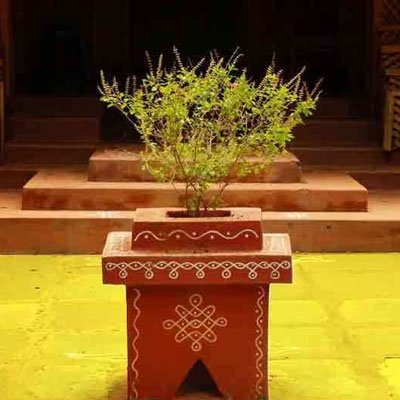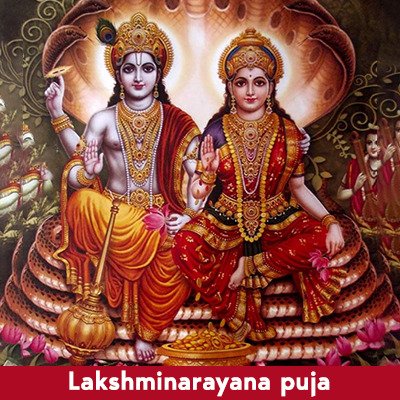₹3100
Overview
- Helps devotees in achieving Moksh.
- To induce peace & prosperity in personal and professional life.
- Eliminates Vaastu Dosh.
- Wards off evil eyes, evil spirits, and negative energy.
- Grants a child to couples trying to start a family.
- Works as a medicinal herb for common cold, cough and boosting the immune system.
Tulsi Puja, otherwise known as Tulsi Vivah, is a ceremonial Hindu festival/ occasion in which the marriage of Tulsi (Holy Basil) is held with God Shaligram or God Vishnu. The ceremony signifies the end of the monsoon and the beginning of the wedding season in Hindu religion. This festival is performed anytime between Prabodhini Ekadashi (the 11th or 12th lunar day of the bright fortnight of Hindu month of Kartik) and Kartik Purnima (the full moon of the month). The day can vary regionally.
The marriage of Tulsi and Vishnu is similar to a traditional Hindu wedding; where it is usually conducted in either homes or temples. A fast is observed on this day till the evening when the ceremony begins. A mandap (marriage stage) is built in the courtyard of the house/ temple where Tulsi is generally planted in the centre of the courtyard, in a brick plaster called Tulsi Vrindavan. It is believed that the soul of Vrinda resides in the Tulsi plant at night and leaves in the morning.
For the ceremony, the bride Tulsi is clothed with a sari and jewelry including earrings and necklaces. A human paper face may be attached to the plant with a bindi and nose- ring (nath). The groom is a brass image or idol of Vishnu/ Krishna/ Balaram/ Shaligram, clothed in a dhoti. Both Tulsi and Vishnu are bathed and decorated with garlands and flowers before the wedding. Then they are linked together with a cotton thread (mala) in the ceremony.
Legend Behind the Tulsi PujaTulsi is also referred to as the wife of Vishnu, i.e. Vishnupriya, meaning the beloved of Vishnu in the early scriptures of Padma Puran. In the scriptures, the legend and rites of Tulsi Vivah are described in details.
According to such scriptures, Tulsi plant was once a woman named Vrinda/ Brinda. She was married to the demon king Jalandhar, and was very pious and devoted to Vishnu. As a result of her piety, her husband Jalandhar became invincible, even the Gods couldn’t defeat him. Hence, they went together to the abode of Vishnu, seeking his help to find a solution. Vishnu, being the Preserver of Creation in the Trinity, promised them that the problem would be taken care of.
Meanwhile, Jalandhar was leaving for war and asked Vrinda to pray for his victory. Vrinda, in turn, promised him that she would do a Sankalp till he returns victorious. Jalandhar left for the war. Seeing this, Vishnu disguised himself as Jalandhar and after some time passed, went inside the palace. Vrinda, upon seeing Jalandhar return from war, left her Sankalp to touch his feet.
With the vow of her Sankalp destroyed, Jalandhar lost his power while engaging in a fierce battle with Shiva. Noticing the immediate difference, Shiva instantly beheaded Jalandhar with such force that his head fell in Vrinda’s lap in her palace. She realized the trickery played on her as it became clear that the person in front of her was not her husband Jalandhar, but Vishnu himself.
In her grief, Vrinda cursed Vishnu to become Shaligram and be separated from his wife, Lakshmi. This was fulfilled when Vishnu was transformed into the black Shaligram stone (a fossil), and in his Ram avatar, he was separated from his wife Sita. She was kidnapped by the demon king, Ravan. Even after rescuing her, they were forced to separate due to their obligations.
Saying thus, Vrinda drowned herself in the ocean, from where the Gods and Vishnu himself collected her soul to a plant, which was henceforth called Tulsi. Vishnu blessed her with a vow that in her next birth, she will be married to Vishnu and this came true when Vishnu, in the form of Shaligram, married Tulsi on Prabodhini Ekadashi. To celebrate this event, the ceremony of Tulsi Vivah is performed.
Online temple offers all types of online puja services, including Tulsi Puja. Get your divine dose of online puja booking immediately.







